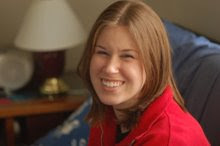The store had only been open for a few weeks, if that. There were people everywhere; the shelves were overflowing with books, music, movies. There were even displays of books outside the store, greeting you before you even entered (this was the first time I had ever seen that). There were stacks of books at the ends of shelves. There were books above the shelves they had so many books. There were employees at every register, a line at the information desk, a line at the music desk, a line at the cafe.
This was back when the Information Desk was still, indeed, an information desk. Employees stood behind the desk, with the computers facing them. They happily told you where to find what you needed, or took you there themselves.
This was back when James (for the purpose of this article, let’s call him James) still worked at Borders. Back before things “went corporate,” as he used to say ... though technically, it was already Borders Group, Inc. Over time, James grew to recognize me when I came into the store. He would find me kneeling in front of the Science Fiction section, to see if Gaiman had released anything new (Neverwhere!!), or replenished the third book in the Fionavar Tapestry, and he would thrust a stack of books into my hands.
“Did you know that Douglas Adams did some nonfiction? Have you seen this?” he would say excitedly. And I always loved every book he introduced me to - from Sidhartha and Last Chance to See to Good Omens and The Things They Carried.
And he would tell me about how virtually every paycheck he made at Borders went right back into the company. He told me about the amazing monthly book credits employees received, how he had crates of books instead of furniture in his apartment, and he made me fall in love with the company -- moreso, as I loved just about any bookstore that carried, well, books.
Fast forward nearly 10 years, to where bookstores are today. Where Borders no longer carries obscure music, and it’s been years since I’ve heard anything playing overhead that I have wanted to buy. Where Amazon is changing the landscape of the book industry, and e-book readers with it.
Where I go into that same store, and James is gone, and Ben, Kristen, and the rest of them.
Where Borders Cafe is now a Seattles Best, and Paperchase is more successful than the backbone of the business -- books. Where you got into a store and have to ask for a book that has been out for a four days -- only to find that it hasn’t been shelved yet, because the employees don’t have enough hours to keep up with 20,000 sq.-ft space. The shelves are in disarray, and you find roleplaying in the middle of Sci-Fi, or a romance book in Young Adult.
What happened to my bookstore?
When they sold books -- not candies, stuffed animals and bags. This was back when the average employee was anything but average. They were passionate, smart people who read just as much as the customers. They would find you browsing Phillip Pullman and ask if you had read Amelia Atwater Rhodes. They didn’t greet you at the door with a coupon and ask if you needed help finding something, rather they thought it was a short visit if you had to leave after 45 minutes of browsing and managed to limit your purchase to three books, not six or seven.
This was back when the average customer spent at least an hour in the store -- they didn’t come in asking for the latest NYT bookseller or Oprah book, but went beyond the bestseller fixture at the front of the store.
What happened to employing people who read?
Now, when I ask for a book, I get blank stares. When I asked the general manager at a store in Michigan what his favorite book was, he shrugged and said he didn’t read, but liked movies.
Shouldn’t it be a prerequisite to like books, to be able to work there? Am I being old fashioned? I don’t think so ...
In my hometown, I grew up going to Borders, Barnes & Noble, and Joseph-Beth Booksellers. I think as a kid, and even as a teenager, I would have been hard-pressed to tell you the difference between any of the brands. They were bookstores, so I loved them. Sure, maybe some of them had dark-wood shelves, and others lighter birch or something, but a bookstore of any kind is a good thing. I connected with people who read, and I found some of the people at each place.
I miss going into a bookstore on a weekly basis, and having the employees recognize me, sometimes running up to me with a book I have to read.
I miss even recognizing the employees, myself, to be honest. Nowadays, I rarely see the same employees twice at the local Borders I go too.
I love Borders, and will fight for the survival of bricks and mortar bookstores in every way that I can (mainly just from continuing to buy from them), but my heart aches for what was.
I know I am generalizing a lot, here. Of course there are still smart people at Borders, in the stores and elsewhere. And I know that people still go in there and waste an afternoon exploring and reading. But there just seems to be such an air of defeat, at the very least indifference, to the place.
And I miss my Borders.











